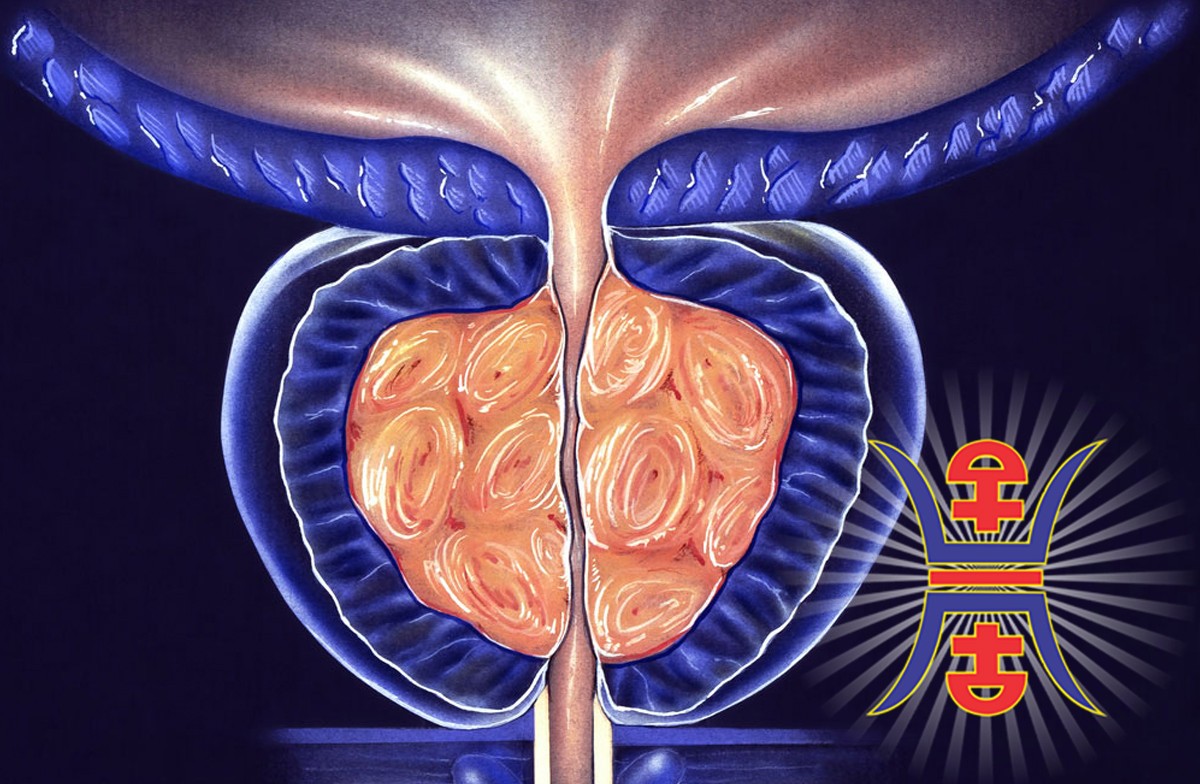Prostate Enlargement
Prostate enlargement, also known as benign prostatic hyperplasia (BPH), is a condition where the prostate gland grows in size, causing problems with urination. The prostate gland is a walnut-shaped gland that is located below the bladder and surrounds the urethra, which is the tube that carries urine from the bladder out of the body.
As the prostate gland grows larger, it can squeeze the urethra, causing a variety of urinary symptoms, such as:
- Frequent urination
- Urgency to urinate
- Difficulty starting urination
- Weak urine stream
- Dribbling at the end of urination
- Incomplete bladder emptying
In conventional medicine, BPH is a common condition that affects many older men. It is not cancerous, but it can cause significant discomfort and affect quality of life. Up to now, there is no cure for BPH, treatment options for BPH include medications, minimally invasive procedures, and surgery.
In natural health, the causes of prostate enlargement (also known as benign prostatic hyperplasia or BPH) are believed to be related to imbalances in the body's energy systems. Specifically, BPH is thought to be caused by a combination of external and internal factors that disrupt the flow of Qi (vital energy) and blood in the kidneys and urinary system.
Some common causes of BPH in natural health include:
- Kidney Qi deficiency: This refers to a weakness or deficiency of the kidney Qi, which can lead to a lack of energy and vitality in the urinary system. This can be caused by aging, chronic illness, or overwork.
- Damp-heat accumulation: This refers to the accumulation of heat and dampness in the lower body, which can cause inflammation and swelling in the prostate gland. This can be caused by a diet high in greasy or spicy foods, a sedentary lifestyle, or exposure to damp environments.
- Blood stasis: This refers to a blockage of blood flow to the prostate gland, which can cause pain and discomfort. This can be caused by a sedentary lifestyle, chronic illness, or exposure to cold and damp environments.
- Emotional factors: According to natural health theory, emotional factors such as stress, anger, and anxiety can also contribute to imbalances in the body's energy systems, which can lead to BPH.
In natural health, prostate enlargement (also known as benign prostatic hyperplasia or BPH) is classified according to different syndromes, each with their own specific treatment approach. The most common natural health syndromes associated with BPH are kidney yang deficiency, damp-heat accumulation, and blood stasis.
- Kidney yang deficiency: This syndrome is characterized by a lack of warmth and energy in the kidneys, which leads to urinary frequency, urgency, and dribbling. Treatment typically involves warming and tonifying the kidney yang energy using acupuncture and herbal remedies such as Eucommia bark, Cistanche, and Rehmannia.
- Damp-heat accumulation: This syndrome is characterized by heat and dampness in the lower body, which can cause urinary retention, pain, and discomfort. Treatment involves clearing heat and dampness from the bladder and urinary tract using acupuncture and herbs such as Gardenia fruit, Plantago seed, and Houttuynia.
- Blood stasis: This syndrome is characterized by a blockage of blood flow to the prostate gland, which can cause pain, discomfort, and urinary retention. Treatment typically involves promoting blood circulation and removing blood stasis using acupuncture and herbs such as Peach kernel, Safflower, and Salvia root.
Natural health treatments for BPH may also involve lifestyle modifications, such as dietary changes, stress reduction techniques, and exercise. Acupuncture and herbal remedies are often used in combination with conventional medical treatments, such as medication and surgery, to help manage the symptoms of BPH.
BPH people should eat
In natural health, dietary recommendations for people with prostate enlargement (also known as benign prostatic hyperplasia or BPH) focus on promoting kidney and bladder health, reducing inflammation, and improving overall urinary function. Some dietary recommendations for people with BPH in natural health include:
- Eat a balanced diet: A balanced diet that includes a variety of nutrient-dense foods such as whole grains, fruits, vegetables, and lean proteins can help support overall health and well-being.
- Eat more vegetables: Vegetables such as broccoli, cauliflower, kale, and cabbage are high in antioxidants and anti-inflammatory compounds, which can help reduce inflammation in the prostate gland.
- Avoid spicy and greasy foods: Foods that are spicy or greasy can cause heat and dampness in the body, which can exacerbate the symptoms of BPH. It is recommended to limit or avoid these types of foods.
- Drink plenty of water: Staying hydrated is important for maintaining good urinary function. Drinking plenty of water can help flush out toxins and promote healthy bladder function.
- Eat more fiber: Eating a high-fiber diet can help promote regular bowel movements and reduce constipation, which can put pressure on the prostate gland.
- Avoid alcohol and caffeine: Both alcohol and caffeine can irritate the bladder and exacerbate urinary symptoms. It is recommended to limit or avoid these beverages.
- Eat more foods that tonify the kidney and bladder: Foods such as black beans, kidney beans, sweet potatoes, and goji berries are believed to tonify the kidneys and bladder in natural health and can be beneficial for people with BPH.
BPH people should avoid
In natural health, people with prostate enlargement (also known as benign prostatic hyperplasia or BPH) should avoid certain foods that can exacerbate the symptoms of BPH. Some foods that are typically recommended to be avoided in TCM for people with BPH include:
- Spicy and greasy foods: Spicy and greasy foods can create heat and dampness in the body, which can exacerbate the symptoms of BPH.
- Alcohol and caffeine: Both alcohol and caffeine can irritate the bladder and exacerbate urinary symptoms. It is recommended to limit or avoid these beverages.
- Cold and raw foods: Cold and raw foods such as salads, raw vegetables, and iced drinks can weaken the digestive system and cause dampness in the body, which can exacerbate the symptoms of BPH.
- Red meat: Red meat is believed to be difficult to digest and can create dampness and heat in the body, which can exacerbate the symptoms of BPH.
- Processed foods: Processed foods are often high in sodium, sugar, and preservatives, which can contribute to inflammation and exacerbate the symptoms of BPH.
In Person With Heshoutang Natural Health Members
With Heshoutang Natural Health Online Members
Fill Out the Questionnaire by yourself
When you subscribe to the blog, we will send you an e-mail when there are new updates on the site so you wouldn't miss them.














Comments